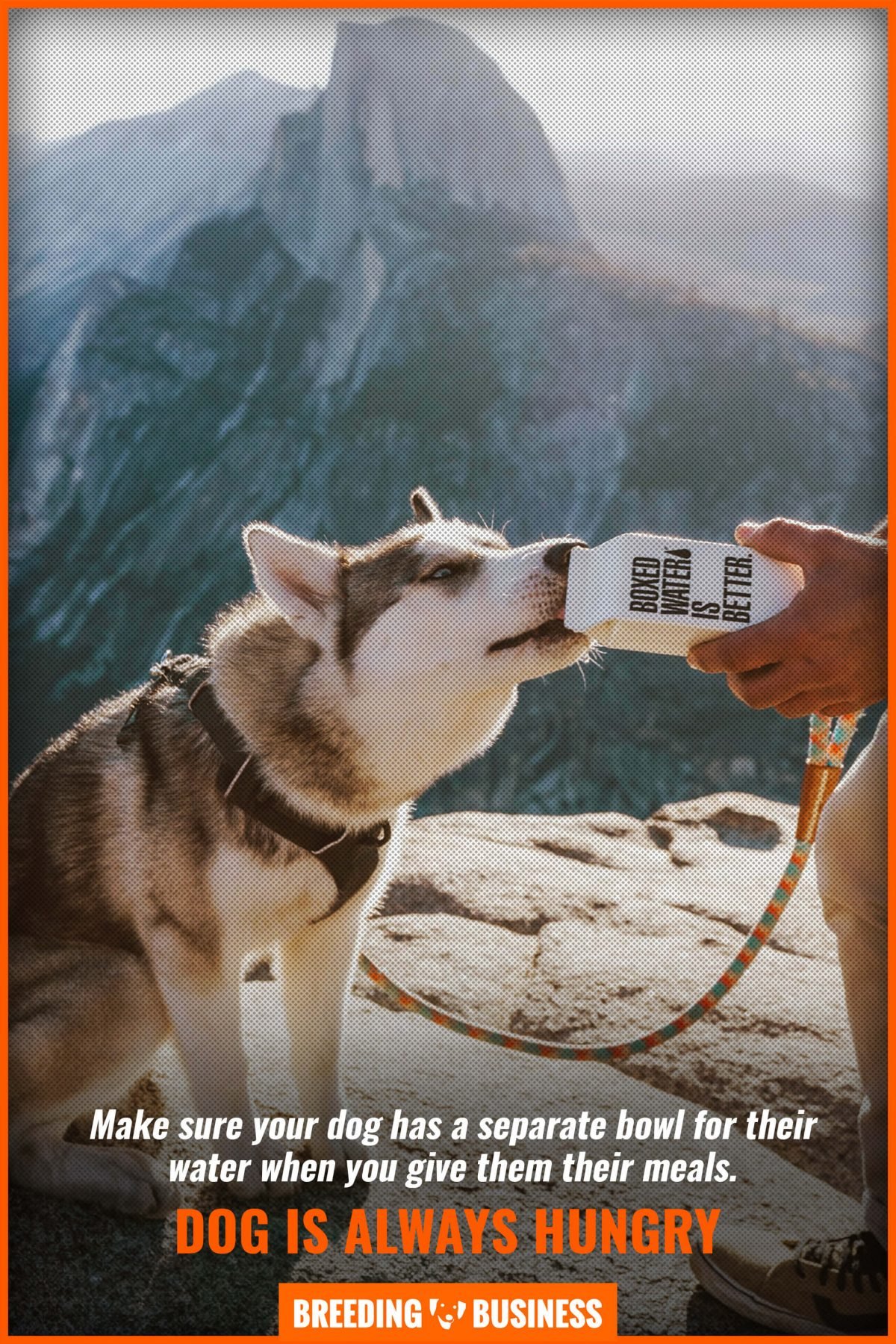Why Do Dogs Feel Hungry All the Time?
Some dog owners might say things somewhere in the lines of “my dog is always hungry and thirsty.” It’s a bit problematic, especially when they’re getting fat or begging too much. As curiosity is in our nature, we tend to sniff around to know the reason behind why our dog never gets full. Here are some of the factors behind your dog’s hunger:
How to Deal with a Dog That Is Always Hungry?
It’s sometimes annoying and worrying when your dog begs endlessly for food. Here are some ways on how to deal with a dog that is always hungry:
The most important thing you need to check when your dog’s always hungry is their diet. Make sure your meals are complete in terms of nutrition and offer the right mix. Sometimes the reason behind your dog’s voracious appetite is the lack of nutrition in your dog’s meals. Here are some of the crucial elements you need to put in your dog’s food:
Many food suggestions for your furry friend and diet guides are available online, like the paleo diet. However, you and your vet can create a specialized meal plan that addresses your dog’s needs.
Like humans, dogs cannot live without water. Although processed food can help get water to your dog, your furry friend needs to have fresh and clean water. Water makes up roughly 70% of the total body weight of an adult dog. A lack of water intake will cause severe outcomes. A decrease of 10% in body water can cause illnesses, while 15% can lead to death. Nonetheless, do not let your dog overdrink or water intoxication that can also lead to mild or severe complications.
Make sure your dog has a separate bowl for their water when you give them their meals. Like their food, water intake can vary from their size and other factors like activity level, weather conditions, and age. Generally, a dog needs to drink half to an ounce of water per pound of their weight every day.

If you have a fixed mealtime for your canine, you can train your dog to expect food at the right time. With a regular schedule, dogs will not whine or bark anymore as they know that they’ll eventually get food. Most dog owners either feed their dogs twice a day with a 12-hour interval or thrice a day.
You can also deal with a dog that’s always hungry to keep them away from the kitchen or dining room. Dogs generally freak out when they’re near food and will bark until you give them a piece of food. Placing a dog fence or distracting your dog when you eat or cook is an excellent way to avoid begging.
Many dogs act as though their stomachs are bottomless; feed them their whole meal and they will follow you around looking for scraps. While this is a plus for positive reinforcement training, it’s hard to not wonder why your dog acts like he is starving all the time. But is there even an answer to the question? A Veterinarian and Dog Trainer weigh in below with some possible explanations for your dog’s insatiable appetite.
Dr. Jules Benson, VP of Veterinary Services at Petplan Pet Insurance says, “typically, the insatiable hunger can be attributed to canine biology, but it also can be a warning sign for a medical issue such as diabetes or Cushing’s disease.”
Based in Tustin, Calif., animal lover Kristina N. Lotz is a Certified Professional Dog Trainer – Knowledge Assessed (CPDT-KA) and works as a full time trainer. She also owns her own custom pet products company, A Fairytail House, where she makes personalized collars, leashes, beds, keepsake pillows and blankets, and anything else your imagine can think up. In her spare time, she trains and competes in herding, agility, obedience, rally, and conformation with her Shetland Sheepdogs.
“In this sense, I think dogs often train us to feed them,” Bennett adds. “My own dog is able to do his ‘it’s time to eat act’ with each member of the family at night and we’ve fallen for it enough that we actually have to confirm with one another whether or not he has been fed. He’s a smart dog.”
Bennett notes that even if you don’t train your dog with food, you are most like “guilty” of giving them a treat when they “ask for it” through begging, staring at you, etc.
14 Signs Your Dog Doesn’t Love You (Even if You Think They Do)
Although dogs may seem perpetually interested in food, an excessive appetite (called polyphagia or hyperphagia) may signal a more serious issue that should be examined by a veterinarian.
If your dog is always hungry, they could have a problem with their metabolism, leaving them abnormally hungry, and they may be begging or whining even after eating.
So how can you tell if your dog is just very interested in food or has an underlying problem?